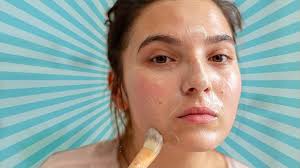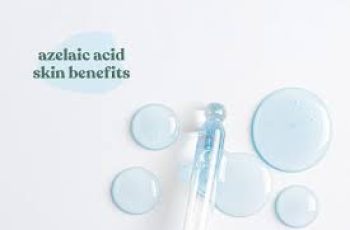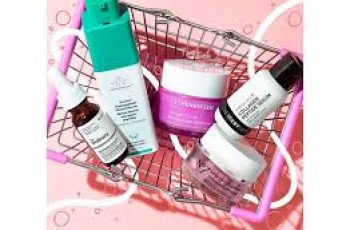
Cheek Acne 101: Root Causes and Effective Ways to Treat It at Home
Acne is a common skin issue that many of us experience at different points in life.
While chin acne is often linked to hormonal fluctuations, and forehead acne is typically associated with stress, identifying the root cause of cheek acne can be more elusive.
Acne, in general, results from clogged pores, excess oil production, and dead skin cells, but the location of your breakouts can provide valuable clues about what’s contributing to the issue.
In this article, we’ll explore the causes of cheek acne, ways to treat it at home, and preventive measures to keep your skin clear.
Causes of Cheek Acne
Cheek acne can stem from a variety of factors. From genetics to everyday habits, many things can trigger breakouts on your cheeks. Here’s a breakdown of some common causes:
1. Genetics
Genetics plays a significant role in determining where you’re most likely to get acne. If your parents had acne on their cheeks, there’s a high chance you’ll experience the same.
Studies suggest that 50 to 90% of acne cases are inherited, which means your genes influence how your oil glands function.
For some people, this means their skin produces more oil, creating the perfect environment for acne to form.
2. Dirty Makeup Brushes
Makeup brushes can accumulate dirt, oil, and bacteria, which can easily be transferred to your skin.
If you haven’t washed your brushes in a while, you may unknowingly be applying acne-causing bacteria directly to your cheeks.
According to the American Academy of Dermatology, dirty makeup tools can also contain product residue, dirt, and oil, all of which can contribute to breakouts.
Regularly cleaning your brushes is an essential part of any skincare routine.
3. Not Changing Your Pillowcase Often Enough
Pillowcases are another often-overlooked culprit. Just like your makeup brushes, they collect bacteria, dust, pollen, and other allergens, which can irritate your skin.
Sleeping on a pillowcase that hasn’t been changed in a while exposes your skin to these impurities, potentially triggering acne.
It’s a good habit to change your pillowcase once or twice a week to minimize exposure to bacteria and irritants.
4. Talking on the Phone
We’ve all been there—holding our phones up to our faces while chatting away. However, this habit can contribute to cheek acne. Cell phones carry bacteria, dirt, and oils from our hands.
Moreover, studies show that the light and heat emitted by our phones can increase the growth of Staphylococcus aureus bacteria, which can lead to acne flare-ups.
If you’ve noticed breakouts on the areas where your phone touches, consider using a hands-free device or cleaning your phone regularly.
5. Harsh Makeup Products
Sometimes, it’s not the cleanliness of your makeup brushes but the makeup products themselves that are causing acne.
Acne cosmetica refers to acne caused by cosmetics and makeup products, which may appear as small white bumps or whiteheads on your skin.
Some products contain comedogenic ingredients, which can clog pores and lead to breakouts. If you’re prone to cheek acne, try switching to non-comedogenic makeup that’s designed to not block pores.
6. Touching Your Face
It’s a habit many of us do without thinking—touching our face. Whether it’s resting your cheek on your hand or picking at pimples, this action can worsen existing acne.
Picking at blemishes increases inflammation, making acne lesions last longer.
Even if you aren’t actively picking, touching your face with dirty hands can introduce more bacteria to your skin, potentially causing breakouts.
7. High Sugar Intake
Diet plays a crucial role in skin health. Studies suggest that high sugar intake may contribute to acne, especially on the cheeks.
Dr. Amanda Doyle, MD, a dermatologist and member of the Women’s Dermatologic Society, notes that high sugar consumption could cause your skin to produce more oil, leading to clogged pores and acne formation.
Reducing sugar intake may not only benefit your overall health but could also help minimize breakouts.
Understanding Your Skin Type and Acne Triggers
Before diving into treatments, it’s important to understand your skin type. Oily skin, for example, is more prone to acne because excess oil can clog pores.
However, even dry skin can be vulnerable to breakouts. When your skin lacks moisture, your oil glands may overcompensate by producing more oil, leading to clogged pores and acne.
Additionally, environmental factors like harsh weather, lifestyle habits, and stress can contribute to acne flare-ups.
Understanding your unique skin type and identifying specific triggers will help you tailor your skincare routine to address your needs and minimize breakouts.
Treating Cheek Acne at Home
Treating cheek acne doesn’t always require a trip to the dermatologist. There are several home remedies and skincare practices that can help you get your acne under control.
A consistent skincare routine, along with a few lifestyle changes, can make a significant difference.
1. Cleansing and Skincare Routine
If you have acne-prone skin, avoid harsh cleansers containing alcohol, which can strip the skin of its natural oils.
Opt for a gentle, non-comedogenic cleanser that will cleanse without causing irritation. Aim to cleanse your skin twice a day—once in the morning and again at night to remove makeup, dirt, and oil.
Be sure to follow up with a hydrating, oil-free moisturizer to keep your skin balanced.
Incorporate targeted ingredients known for their acne-fighting properties. Niacinamide, Vitamin C, and azelaic acid are all excellent choices for treating cheek acne.
2. Targeted Ingredients to Include in Your Routine
Azelaic Acid: Azelaic acid, found naturally in grains like barley and wheat, has powerful antimicrobial, anti-inflammatory, and antioxidant properties.
It helps reduce bacteria on the skin, which prevents breakouts, and can help fade scars from previous acne. The FS Azelaic Acid 14% Cream is a potent option.
Niacinamide: A form of Vitamin B3, niacinamide helps balance oil production while soothing inflammation. It also strengthens the skin barrier, preventing further irritation.
Vitamin C: Known for its antioxidant properties, Vitamin C reduces redness, promotes collagen production, and helps with scar healing. It’s also a great anti-inflammatory ingredient.
Granactive Retinoid: A derivative of Vitamin A, retinoids help unclog pores, reduce oil production, and promote cell turnover.
Retinoids are also effective in preventing acne scars by encouraging the regeneration of new skin cells.
Hyaluronic Acid: If your skin is on the drier side, incorporating hyaluronic acid into your skincare routine will help keep your skin hydrated and prevent your oil glands from becoming overactive.
Sunscreen: Always finish your morning skincare routine with a broad-spectrum sunscreen. Sun exposure can exacerbate acne and dehydration, triggering an overproduction of oil.
Sample Routine for Cheek Acne:
Morning: Start with a gentle cleanser, followed by Niacinamide Lotion (10%) to reduce oil production.
Apply Hyaluronic Acid Lotion for hydration, then layer on Azelaic Acid Cream (14%) and finish with sunscreen.
Evening: After cleansing, apply Niacinamide Lotion (10%), followed by Vitamin C Lotion (20%), and finish with Night Renewal Cream for hydration and acne treatment.
3. Home Remedies to Soothe Cheek Acne
Along with a solid skincare routine, a few natural remedies can help soothe inflamed acne on your cheeks:
Aloe Vera: Known for its calming and healing properties, aloe vera gel can reduce redness and inflammation in acne-prone areas. Apply it directly to the affected areas to speed up healing.
Tea Tree Oil: Tea tree oil has antimicrobial properties, making it an effective natural remedy for acne. Dab it on swollen pimples to reduce inflammation and kill bacteria.
Zinc Supplements: Zinc is an essential mineral that can reduce acne inflammation. Taking a zinc supplement may help reduce the number of blemishes on your skin.
Lifestyle Changes to Prevent Cheek Acne
Preventing cheek acne isn’t just about skincare. Lifestyle habits play a big role in maintaining clear skin. Here are some tips to reduce the likelihood of future breakouts:
Follow a consistent skincare routine tailored to your skin type.
Clean your makeup brushes regularly to avoid transferring bacteria and oil.
Change your pillowcase frequently to prevent bacteria buildup.
Minimize phone contact with your face—use a headset or earphones.
Avoid touching your face to prevent the spread of bacteria.
Stay hydrated and maintain a balanced diet rich in fruits and vegetables.
Limit sugar intake, as it may exacerbate acne.
Manage stress levels, since stress can trigger acne flare-ups.
Wear sunscreen daily to protect your skin from harmful UV rays.
When to See a Dermatologist
If home remedies and over-the-counter treatments don’t seem to work, or if your acne becomes severe, it may be time to seek professional help.
A dermatologist can provide stronger prescription medications, such as topical retinoids or antibiotics, to treat acne.
If you’re also dealing with scarring, a dermatologist can recommend treatments to help reduce or eliminate scars.
Acne is a frustrating skin condition, but with the right approach, it can be managed effectively.
By understanding your skin, treating it with the right ingredients, and adopting good habits, you can enjoy clearer, healthier skin.


